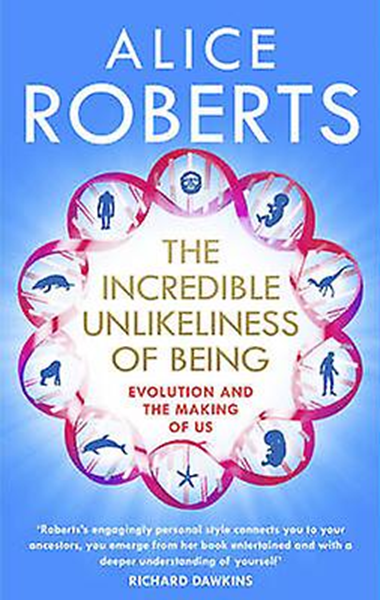Book Review: The Incredible Unlikeliness of Being

Ever since I watched Professor Alice Roberts’ series on travelling Egypt by Train, I’ve been quite a fan of her work. (It also means I probably came to knowing about her later than I should have). Since then, I’ve been working through a number of her books. On Audible, I just finished listening to The Incredible Unlikeliness of Being.
Amongst many other things, Alice is an English biological anthropologist. She also worked as a doctor in the National Heath Service in Wales for a while, but she left clinical medicine to focus on anatomy.
This is an amazingly powerful book.
I can’t describe just how many things I learned when listening to it. Alice shows a mastery of so many disciplines (like anatomy, genetics, biology, evolution, and more) and combines them to tell a detailed story of the evolution of the human body. She fills in so many gaps that I didn’t understand about why things in the body are the way they are, and importantly, how they came to be that way.
Alice works through each of the major systems of the body, one by one, and describes so much about how they function in humans, and how they function in other animals, particularly those that share a common ancestor with us in the tree of life.
When I was at high school, biology was considered a softer science than chemistry, psychics, mathematics, etc. In fact, in an indication of the appalling gender-divide back then, at our school biology was taught over at the girls’ high school and males who wanted to learn, needed to go there. Worse still, because it didn’t rate as well as other sciences, it put students in a less competitive situation for university entrance. That meant that if you wanted to be a medical doctor, the worst thing you could do was to study biology at school, as it would reduce your chances of getting into medical school. How ridiculous!
As I’ve aged, I’ve now built a complete fascination with biology. I wish I’d spent more time on it when younger. This book hit the mark for me nicely.
Audio
I’ve seen a few comments from people (one or two from the USA) who have some difficulty with Alice’s accent and found the book harder because she read it herself. I couldn’t disagree with those comments more. I’m so very glad that Alice read the book herself. She has a steady pace, a clear accent, and is obviously used to teaching. Her accent is a pretty straightforward English accent.
The Verdict?
After learning so many things from the book (and it’s a long book), I got a hint of just how much more I don’t know about this. At some point, if I have another 11 hours 15 minutes to spare, this is one book that I’ll likely listen to again, to try to catch some of what I’m sure I missed.
10 out of 10
2023-06-11
